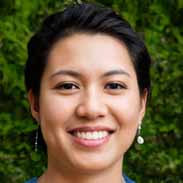John Dewey and Progressive Education – Flashcards
Unlock all answers in this set
Unlock answersquestion
Who
answer
-Dewey tested ideas with leading school reformers such as Francis W. Parker and Ella Flagg Young -Margaret Naumburg wrote a book about progressive education called The Child and the World
question
What
answer
-Progressive education aimed to make schools more democratic- active participation by all citizens in social, political and economic decisions that will affect their lives -Progressive educators opposed a movement that tried to make education into training for life a life in industry/business -Respect for diversity was key -Development of critical, socially engaged intelligence -Progressive educators insisted on importance of emotional, artistic, and creative aspects of human development -Dewey became a founder of hands-on learning or experiential education -Dewey said that the teacher should not stand at the front and recite information to be memorized- teacher should be facilitator and guide
question
What: part 2
answer
-Dewey believed that students thrive in an environment where they can interact with and experience the curriculum, and students should take part in their own learning -Importance of education not only for gaining content knowledge, but for learning how to live -Not acquiring set of pre-determined skills, but realizing your potential and using it to help the greater good -Students should learn in a way that they can relate information to experiences from their lives, making a deeper connection with the knowledge
question
When
answer
-Dewey worked in his Laboratory School at the University of Chicago from 1896-1904 -Recorded ideas in books between 1899 and 1916 -Progressive Education Association founded in 1919 -In the 1920s, education turned to "scientific techniques", preparation for business world. Progressive educators aimed to stop this
question
Where
answer
-Dewey had a Laboratory School at the University of Chicago -Especially in urban locations, education was focused on preparing children for the industrial world, which progressive educators weren't in favor of
question
Why
answer
-Respect for diversity is important because each individual needs to be recognized for their own personal needs, identity, abilities, etc. -Development of critical, socially engaged intelligence enables students to comprehend and actively participate in the community, working together to achieve common good -Progressive education important because public schools attempted to achieve cultural uniformity, and to create obedient, not creative citizens -Industrial economy pressured schools to become a competitive environment preparing students for industrial jobs in future -Young people losing crucial opportunities to learn democratic participation
question
Why: part 2
answer
-In 1920s, education turned to "scientific" techniques like intelligence testing and cost-benefit management, and progressive educators stressed the importance of emotional, artistic and creative sides of learning -John Dewey argued that a common flaw in education was that the student was inactive, simply one who needs to be taught, not acknowledging his/her particular personality/learning style -John Dewey argued that relying too much on the child was just as bad, and that minimized the importance of the content and of the teacher -John Dewey said that the teacher shouldn't be there to enforce a set of ideas or habits in the child, but to guide and assist the student as a member of the community, helping the student discover the subject's meaning independently
question
How
answer
-Dewey circulated his ideas by writing books such as "The School and Society", "The Child and the Curriculum", "Schools of Tomorrow", "Democracy and Education", "My Pedagogic Creed", and "Experience and Education" -Dewey gave numerous lectures -Dewey wrote many articles -The Progressive Education Association (founded in 1919) aimed to reform the entire school system of America -Dewey was active in setting up institutions such as the University of Chicago Laboratory Schools (1896) and The New School for Social Research (1919) in New York
question
Quotes
answer
-"The child and the curriculum are simply two limits which define a single process. Just as two points define a straight line, so the present standpoint of the child and the facts and truths of studies define instruction." -"If knowledge comes from the impressions made upon us by natural objects, it is impossible to procure knowledge without the use of objects which impress the mind" -"The teacher is not in the school to impose certain ideas or to form certain habits in the child, but is there as a member of the community to select the influences which shall affect the child and to assist him in properly responding to these. Thus, the teacher becomes a partner in the learning process, guiding students to independently discover meaning within the subject area."
question
Quotes: part 2
answer
-"To prepare him for the future means to give him command of himself; it means so to train him that he will have the full and ready use of all his capacities" -"We must take our stand with the child and our departure from him. It is he and not the subject-matter which determines both quality and quantity of learning."



